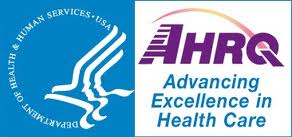 By Arlene Bierman MD, MS, Director of AHRQ’s Center for Evidence & Practice Improvement,
By Arlene Bierman MD, MS, Director of AHRQ’s Center for Evidence & Practice Improvement,
Cindy Brach, MPP, Senior Healthcare Researcher in CEPI &
Brent Sandmeyer, MPH, Social Science Analyst in CE
Twitter: @AHRQNews
Health systems built on a strong foundation of primary care achieve better health outcomes. Healthcare delivery, however, accounts for only 20 percent of population health. It has long been known that social risk factors, the circumstances under which people live, work, and play, are the major determinants of health. Lack of attention to the social determinants of health (SDOH) may contribute to the United States’ relatively poor ranking in international comparisons of population health and health systems performance. There is growing recognition that optimizing individual and population health will require innovative approaches to integrating clinical care with social services and public health. Primary care has a pivotal role to play in achieving this goal.
AHRQ is committed to increasing the capacity of primary care practices to deliver “whole person care” and to better manage the populations they serve. Primary care practices, challenged to improve health outcomes, confront the vexing dilemma of how to best accomplish this when many of the factors that influence outcomes lie outside of their control.
- How can a practice best help patients to control their diabetes when the underlying problems are food insecurity, insufficient access to healthy food, or lack of safe places for physical activity?
- How can a practice prevent emergency room visits or hospital admissions when environmental factors, such as poor housing conditions, are the cause?
Fortunately, a growing body of literature is providing evidence for practice-based interventions that align community resources and public health interventions to improve chronic disease prevention and management. There is a pressing need for data and analytic tools that enable primary care practices to recognize and better address social risk factors, and care for patients and populations in the context of their lives.
AHRQ is pleased to announce a new $6 million grant initiative that uses data and analytics to support primary care and community interventions to improve chronic disease prevention and management and population health. Over the next 3 years, three grantee organizations will integrate data on chronic disease, social determinants of health, and community services to create actionable dashboards to support better management of high-risk individuals and populations.
These grants will enable primary care providers to partner with community stakeholders and social service organizations to prevent and manage chronic conditions. This initiative will foster health equity, with grantees testing innovations in ethnically and racially diverse and low-income communities.
The three grants are:
Data Analytics to Support the Alignment of High-Risk Adult Programs and Services. (Denver Health and Hospital Authority. Principal Investigators: Rachel Everhart and Rebecca Hanratty). The grantee will:
- Develop electronic health record-accessible tools that integrate health, correctional, and social services data and modify related clinical workflows to:
- Identify and risk-stratify the substance use disorder population.
- Improve transitions from corrections/jail to community.
- Monitor clinical and cost/utilization outcomes.
- Create tools that make a risk profile and specific needs available to the care team and care coordinators at the point of care.
Using Social and Medical Data Integration to Improve Primary Care and Population-Level Chronic Disease Prevention and Management. (University of California, San Francisco. Principal Investigators: Danielle Hessler and Caroline Fichtenberg). The grantee will:
- Develop, refine, and deploy integrated health and social risk data dashboards for use in chronic disease-related patient care, population health management, and community health planning.
- Seamlessly integrate health and social needs data, facilitating bi-directional referrals between health and social service providers.
- Evaluate the impacts of dashboards on cardiovascular disease prevention and management.
Care System Analytics to Support Primary Care Patients with Complex Medical and Social Needs (Kaiser Foundation Research Institute. Principal Investigator: Richard Grant). The grantee will:
- Use advanced data analytical techniques to identify patients with multiple chronic conditions (MCC) who have potentially actionable social barriers to effective care.
- Develop an MCC Social Needs dashboard for primary care teams to prioritize patients with complex medical care needs for specific interventions to address unmet social needs.
- Pilot the dashboard with Kaiser Permanente primary care providers working in three low-income communities.
- Integrate new tools with UniteUs social service referral tools.
Together these grants will target AHRQ priorities of opioids/substance use disorders, cardiovascular disease risk, and multiple chronic conditions. The innovations will be implemented in diverse settings: a safety net health system, Federally Qualified Health Centers (FQHCs), and a large, geographically diverse integrated health system.
AHRQ expects these projects to exert a powerful and sustained influence by harnessing the power of data to improve individual and community health among those at greatest risk for preventable adverse health outcomes from chronic conditions. Collectively, this portfolio will promote health equity and contribute to the delivery of whole person, 360-degree care that meets physical and behavioral health and social service needs.
This article was originally published on AHRQ Views Blog and is republished here with permission.
